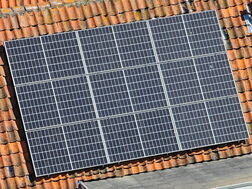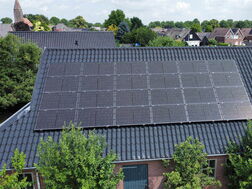In its latest quick estimate, the Central Bureau of Statistics (CBS) set inflation for May 2023 at 6.1 per cent. This means consumer goods and services were 6.1 per cent more expensive in May than in the same month a year earlier. By comparison, the figure was 5.2 per cent in April. At first glance, this seems like a significant increase, but it is important to note that this inflation is not on top of April's inflation.
Initially, inflation appeared to ease somewhat in early 2023, with a rise of 'only' 4.4 per cent in March. Yet inflation picked up in the following months, April and May. The price rise seems persistent in a country experiencing minimum price increases of 4 per cent per month for a year and a half from a year earlier.
What is interesting is the price development of different product groups announced by CBS. These product groups comprise spending categories around specific themes, such as services. The official price development of all types in the consumer price index (CPI) will be announced on 6 June.
A notable price rise was recorded in food and beverages, with a significant increase of 12.8 per cent. Other areas showing increases were industrial goods and services such as transport, healthcare and hospitality. On the other hand, energy prices fell 18.5 per cent, which may be partly due to changes in measurement methods.
CBS will use a new method to measure energy prices in the CPI from June 2023. This new method will use transaction data from energy suppliers, providing a more accurate inflation figure by considering the tariffs of existing energy contracts.
It is also essential to look at inflation in the Netherlands compared to other European countries. According to Eurostat, the statistical office of the European Union, countries such as Germany, Spain, Italy and France have seen a decline in inflation. This contrasts with Dutch inflation, which rose over the same period.
However, it is also essential to consider wage trends in the country. Despite persistent inflation, wages are also rising in the Netherlands. According to CBS, CAO wages have increased by 5.5 per cent this year, and preliminary figures show that the average wage increase agreed on in May was as much as 7.8 per cent. This figure, reported by the employers' association AWVN, marks the highest increase ever recorded by the organisation.
Nevertheless, employers expect that the peak of wage increases has been reached. Less high wage increases are expected to be agreed upon later this year, partly because inflation is lower than a few months ago and the economy is contracting.
It remains necessary to monitor inflation closely and understand how it affects the economy as a whole, especially at a time when both prices and wages fluctuate. Despite persistent inflation and its persistence, consumers and businesses seem to be adjusting to changing economic conditions.





